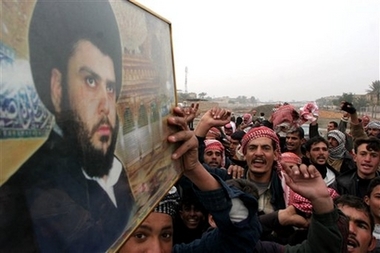Top Shiite cleric balks at plan for Iraq
(AP)Updated: 2006-12-24 16:23
BAGHDAD, Iraq - A US-backed plan to form a political coalition of Iraq's Shiites, Sunni Arabs and Kurds - a glimmer of hope in a nation torn by sectarian violence - failed to win the crucial support of the top Shiite cleric Saturday.
By shunning the coalition plan, al-Sistani sought to unite the Shiite's fractured 130-member United Iraqi Alliance. But his decision - which carries great weight with the country's Shiite majority - significantly weakens American hopes for a national unity government and strengthens the hand of the radical Shiite cleric Muqtada al-Sadr.
Al-Sistani's decision may not doom the proposed coalition, but it significantly reduces its chances.
"There are obstacles in the face of forming this coalition, because al-Sistani does not support it," said Hassan al-Suneid, a top aide to Prime Minister Nouri al-Maliki.
An official close to al-Sistani, who spoke on condition of anonymity because he was not authorized to talk to the media, said the cleric "will not bless nor support any new bloc or front. He only supports the unity of the Shiites."
The proposed coalition - which would not have included al-Sadr's supporters - could have isolated the militant cleric, commander of a militia army blamed for many sectarian attacks.
Two US soldiers were killed Saturday in separate roadside blasts near Baghdad, the US military said. One bomb exploded southeast of the capital near a patrol searching for "suspected terrorists," it said. That blast also wounded four other US soldiers. The other bomb exploded southwest of Baghdad, near a patrol delivering supplies to units in the area.
Police in Baghdad said they discovered 47 bodies - apparent victims of violence between Sunni and Shiites.
Meanwhile, President Bush met with his new defense secretary Robert Gates at his presidential retreat in Camp David, Md., to discuss military options for Iraq including a proposal to send thousands more troops to the 140,000 already in Iraq to try to quell escalating violence, particularly in Baghdad.
The president is expect to announce a revamped Iraq
strategy in a speech to the nation between New Year's Day and Jan. 23, when he
gives his State of the Union address.
| 1 | 2 |  |
|
||
|
||
|
|


